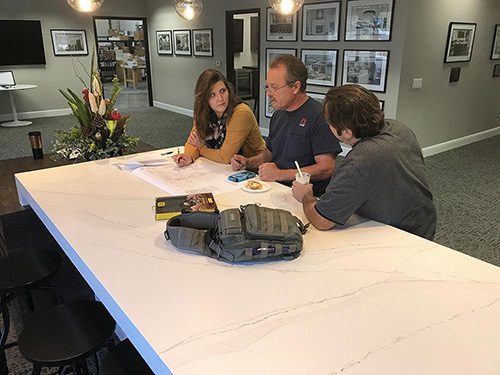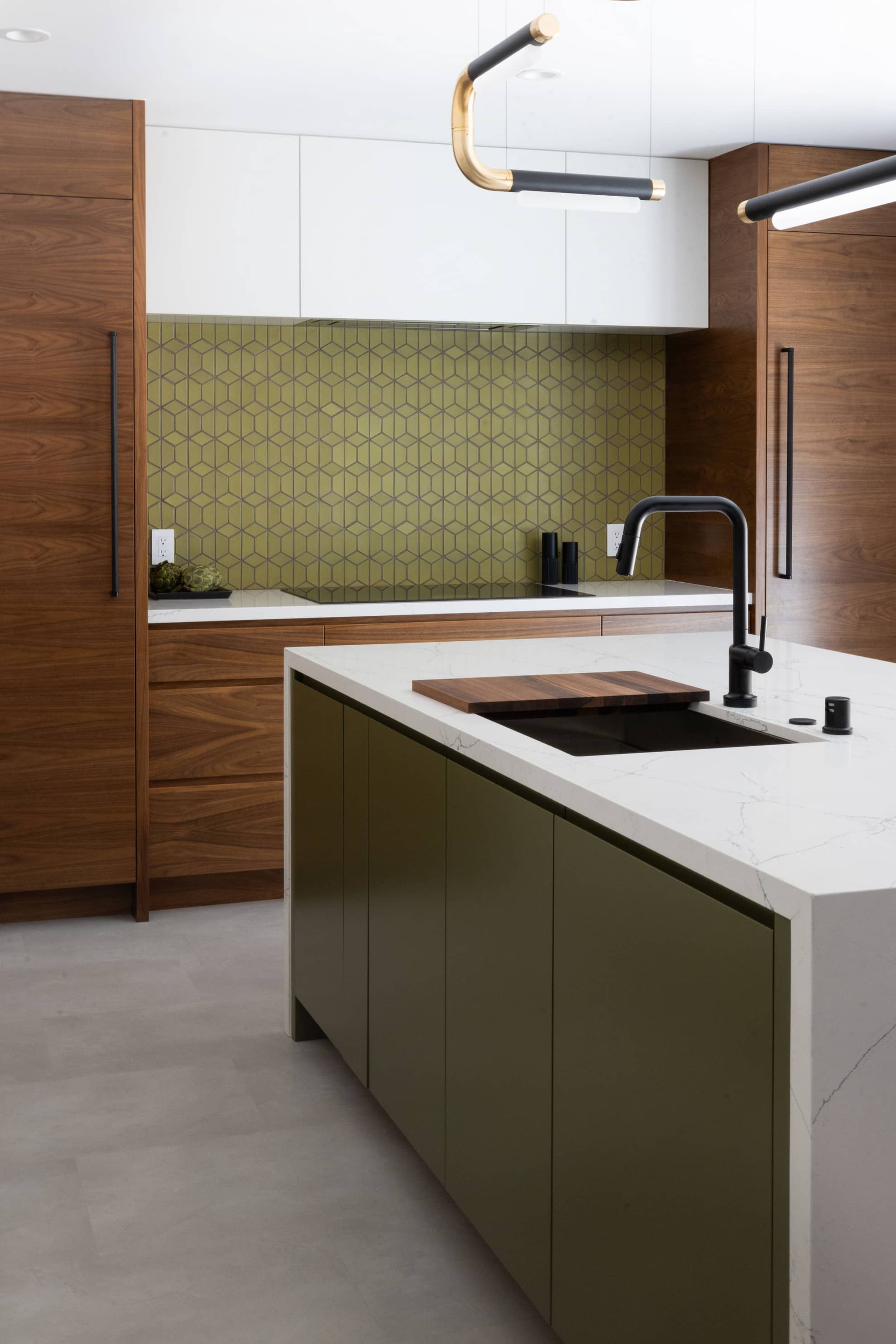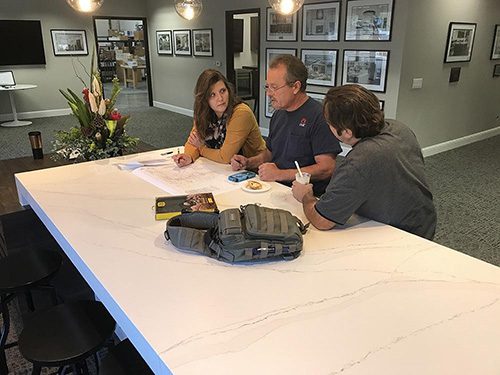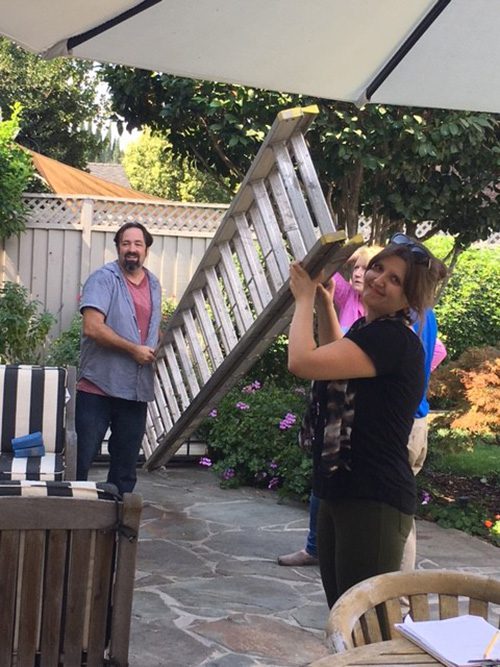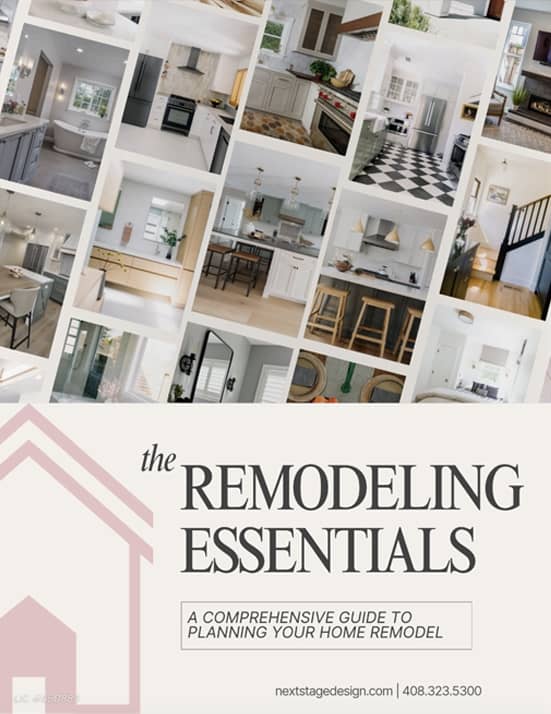You’ve decided to make changes to your house, but you don’t know who to hire. Many companies offer the services of a designer as part of larger team of design-build professionals. Here are a few reasons you would benefit from having a designer as part of your team:
Creativity
You might be tempted to avoid the designer altogether and go straight to the remodeler or contractor to design your home project—particularly if your project is small and seems rather simple. However, remodelers tend to fulfill your requests in a straightforward way, keeping everything simple and without spending a lot of time on the design. That might sound good to you, but you don’t know what you’re missing. Designers bring more creativity to the project. This doesn’t just mean they have more ideas for décor or the latest style of cabinet. They can find ways of solving your problems that you haven’t thought of—ways that make the best use of your space and that can save you money and time.
Holistic
A designer will sit down with you and start the process holistically. He or she will discuss your lifestyle, your needs, and your stylistic preferences—as well as how you envision using the space in the future. A designer will discuss various options with you and describe the pros and cons. Designers tend to be good communicators; they will listen to you, and they can explain in clear, nontechnical terms what problems may arise in the home design process. Chances are that a designer will have designed a project similar to yours—which isn’t always true for remodelers, who often do the work on remodeling projects but frequently don’t design them. Ask to see a designer’s portfolio. That will give you an idea of the type of work he or she does.
Save Time
With a vast knowledge of home interior design, designers are up-to-date on the latest technology, materials, and developments in the field. New technologies are coming onto the market all the time. Designers have this information at their fingertips; they don’t need to go and do the research. Situations may arise in which only a designer has the experience and creativity to address a problem in a way that can save you time—and thus money.
Permitting
Building codes are complex, and it helps to have someone on your team who has been through your municipality’s permitting process before. Knowledgeable designers with current knowledge of building science can get your remodeling project plans through the permitting process with a minimum number of revisions. Because every revision takes time to be finished, fewer revisions means getting your permit faster. Low-quality or incomplete documents might delay the beginning of construction. A designer will help ensure that your project meets relevant codes, so it can progress smoothly and quickly through your municipality’s permitting process.
Assistance During Construction
A designer will give you the benefit of his/her expertise and understanding of the overall construction process. Although the designer’s basic function is interpreting your needs and developing a professional plan for your project, the designer can also supply many other resources to make sure the building process goes smoothly. A designer can guide you through the relevant building application process, assist in the hiring of general contractors, recommend subcontractors, and help manage the construction phase on your behalf to ensure that building plans are accurately followed. A designer can also be your advocate. It can be tough for you to verify that contractors are carrying out the plans properly—or even know which contractor is responsible for which issue.
What About an Architect?
First of all, you probably don’t need an architect. Most architects (98%) don’t work on residential projects at all; they design office buildings, schools, hotels, etc. Who designs the homes? Design-builders, developers, and engineers. Designers at design-build firms do a lot of this work. They have studied home design; many are certified. And usually they work with engineers and architects to address specialized structural or design issues.
While an architect may have more academic training in architectural styles and history, a certified house designer probably has as much or more knowledge of the practical elements of house design – basic structural design, space planning, and the details of building construction. Many certified house designers have a lot more hands-on experience with the nitty gritty of house construction than a licensed architect with experience in large public buildings.
Need help planning your home design interior? Start a conversation with a Next Stage Design Project Consultant today!
